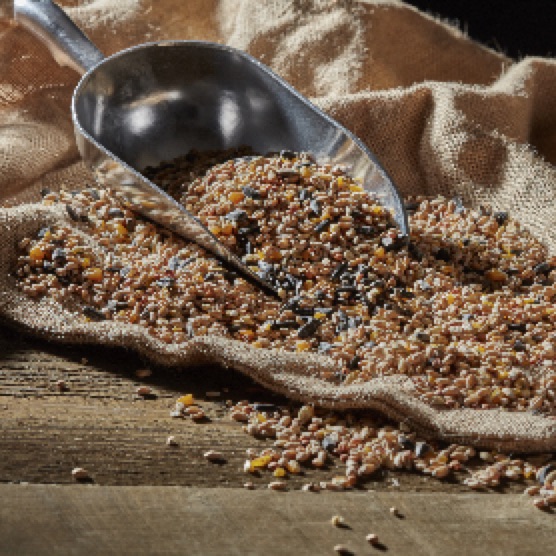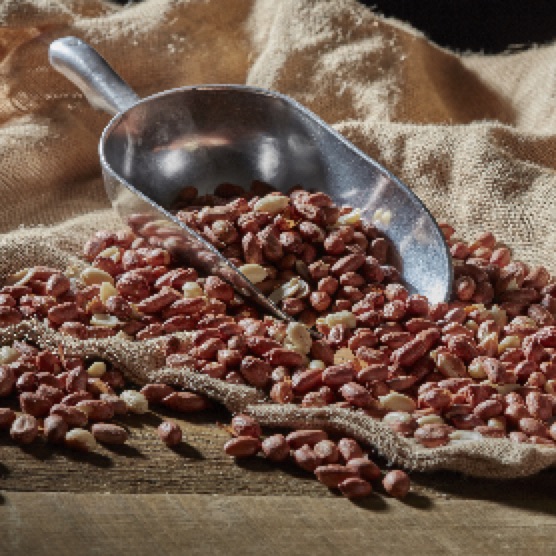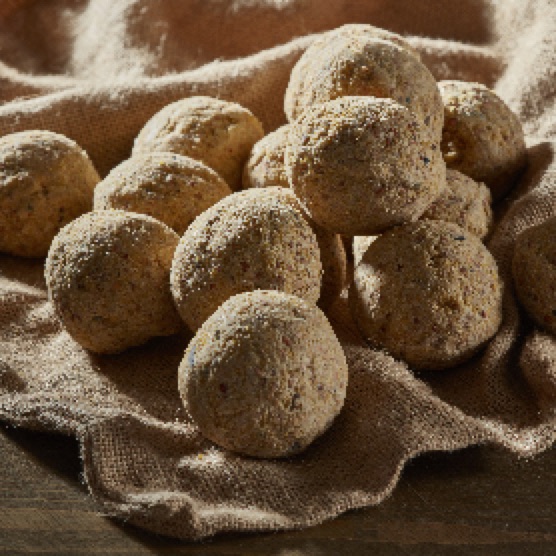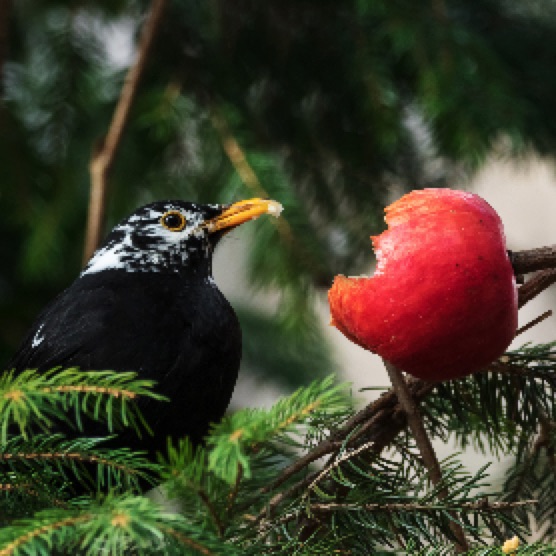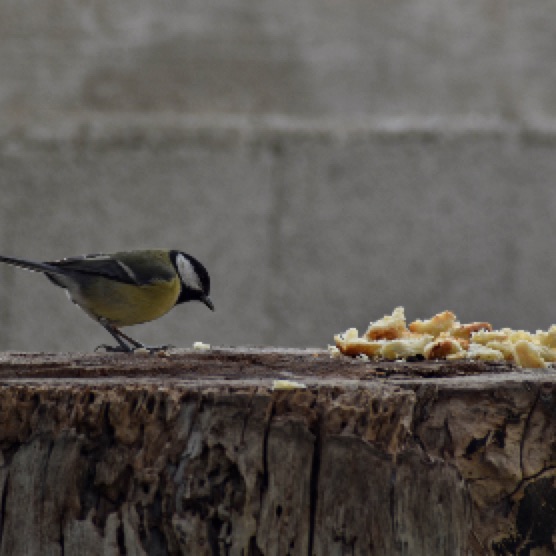Our Bird Food Guide
One of the best ways to give nature the helping hand it needs, is to offer food for the garden birds. Not only will you be helping them out in the seasons where food is scarce, but the regular traffic of birds will double up as pest control!
If you're new to bird feeding, we've put together some handy info to get you started. Or if you want to try something new, take a look at what you could put on offer at your bird banquet!
Seed mixes
A staple diet for many, seeds are a wonderfully easy way to give a variety of birds the feed they need. From robins to starlings, all manner of garden birds will be vying for a nibble at your feeder if you put seeds on offer.
Adding a seed mix to your feeders rather than just one type of seed will better your chances of seeing more breeds Seeds are packed full of all the vitamins and essential oils that will give the birds the energy boost they need.
You can even opt for a seed mix that optimises your chances of seeing a specific type of bird, or tailor your feed for a specific season. If you want to avoid the larger birds like pigeons and give the smaller birds a chance, look for a feed that doesn't include wheat. Or if you want something that will leave the minimum amount of mess once the birds have dined, look for a no mess mix which has been "cut" or "de-husked". This will be less likely to germinate, meaning you don't have to worry about alien plants popping up from your lawn.
Straights
A straight just means one type of bird food. Some of these are favourites for a specific type of bird, whereas others should be offered in a certain way for safety.
Niger seed - A real favourite for finches, niger seed is a tiny seed that comes from Africa which is often mistaken for thistle seed. It's rich in fat, and ideally should be offered in a niger seed feeder to limit the amount of mess that can be left afterwards.
Peanuts - A high oil content makes them an ideal choice for birds that want an energy boost. You should always offer peanuts in a mesh feeder, as some smaller birds can choke on the nut if they are offered whole.
Meal worms - Especially popular during the breeding season, mealworms are packed full with protein. This high calorie treat is favoured by bluetits and wrens, and are a great replacement when naturally occuring foods are hard to come by.
Sunflower seeds - A great alternative to peanuts, sunflower seeds are high in oil, unsaturated fats, and protein; they are exceptionally popular with finches and the odd nuthatch. The sunflower husks are also great for compost.
Sunflower hearts - These are wonderful if you prefer to offer a no mess choice of food, as sunflower hearts are simply the seeds which have been de-husked.
Suets and fat
While these might not be on the menu for us, birds can't get enough of the high energy treat that is suet and fatty foods. Suet is the fat from around the loins and kidneys of cows, and is ideal for giving birds the fuel they need.
Birds are spoiled for choice when it comes to the variety of fatty treats on offer. Fat balls, cakes, logs, and bars are among the more popular choices for what to offer your garden birds. These are made from a base fat, which is usually suet, and can sometimes be mixed with seeds, insects, or nuts to give the birds even more of an immense energy feast. Special bird butters are also a fantastic way to give them the high energy feast that they love.
A few of these need a special feeder to offer them, but no matter what you opt for it will be sure to bring a whole assortment of birds to your garden. The nuthatch in particular really loves this high energy delicacy!
Fruit
Offering fruit on your feeding table is another fantastic way to encourage birds like thrushes, robins, and blackbirds to your garden. Pears and apples are a good choice, but if you have fruit trees growing in your garden these will also entice feathered friends to come and visit. Fieldfares love apples in cold weather too!
Fruit is great option to give the birds a high energy, high water treat which is full of all the simple sugars that they need!
Leftovers
A brilliant way to cut down on your own food waste is to leave leftovers out for the birds, but at the same time it's important to be mindful of what you offer. Try and cut food down to a size that the birds can eat, and which is suitable for the birds that you want to entice. Avoid anything that's full of polyunsaturated fats or salty foods, as they may do more harm than good.
Remember that if the birds don't eat the leftovers that you leave out for them, other creatures will - try and only put out as much food as the birds will finish, to avoid any unwanted visitors.
If you're looking for what to leave out for the birds, think about things like fresh fruit, bacon, and bread. Fruit is a wonderful high energy snack that can be offered in a ground feeder if need be. Bacon is a great high fat treat to leave out, and will be especially helpful during the winter months - just make sure that it's the unsalted version that you leave for them. While you shouldn't give bread to ducks, it is okay to offer it in moderation for garden birds. Soak stale bread in water overnight, and only offer it as an occasional tidbit. A little goes a long way.
Live food
It may not be everyone's cup of tea, but live food is a real favourite for the garden birds. An abundance of birds are insect eaters, otherwise known as flycatchers, so by only offering seed you could be limiting the variety of visitors that come to your garden. If you've got an aversion to creepy crawlies, there's no need to panic. Live foods such as mealworms and waxworms are the easiest to find, but you can always go for the dried variation if you don't like the idea of the squirmy ones.
Live food is particularly helpful to garden birds during the breeding season, as it allows the adults to feed their young. If you've got some of it on offer in your garden, you could have a whole array of birds flocking to your feeding table!
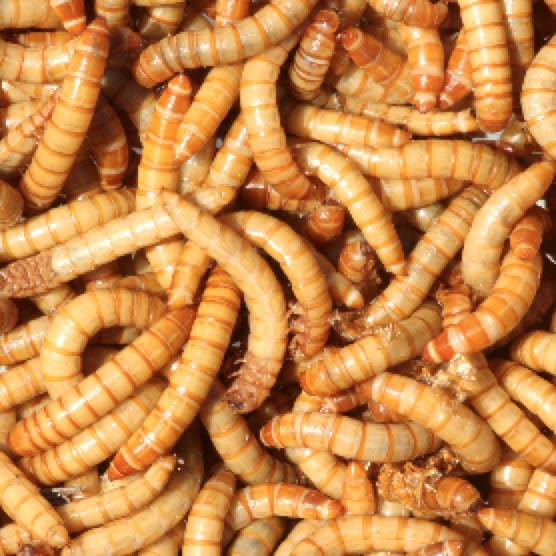
Sign Up For Exclusive Special Offers




© 2024 Thompson & Morgan. All rights reserved. A division of Branded Garden Products Limited.

